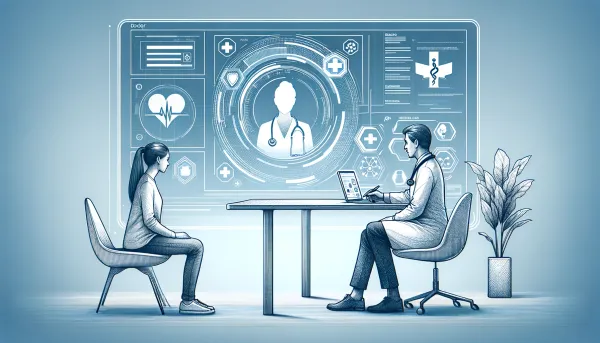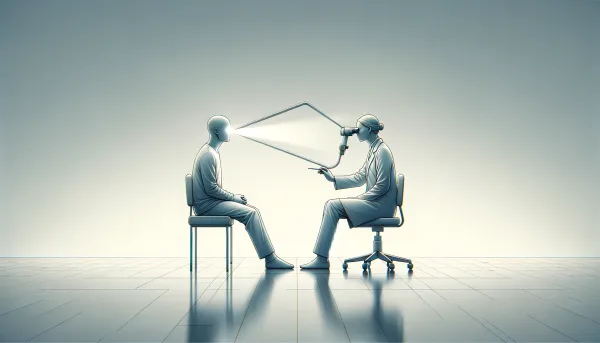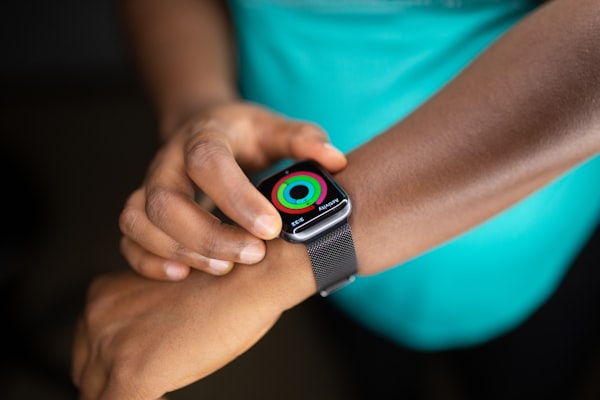Starting a new newsletter: Sunday MashUp
I’m starting a new newsletter, a bit different than the previous one. I call it Sunday MashUp - now Medical Notes and it's about digital health.

It includes resources from various fields that are at least in some way connected to medicine - that’s why I call it a “mashup”. That’s because, in a world of specialists, generalists succeed.
What can you expect? Expect interesting resources from a range of areas connected to medicine every Sunday. I provide them to you, you upgrade your knowledge.
Now let’s dive into a "pilot" issue. I hope you like it and send some feedback my way!
Health
WHO published its official coronavirus report. They explain the process of the outbreak from the start to where it is now. It seems that China’s initial response was key to prevent an even bigger outbreak. Reading this analysis and forming an opinion is much better than following the news.
I never thought about the importance of learning about climate change in medical school. Until I read this article in this month’s Nature Medicine explaining why we should be taught about it. Where the article got me was this: “teaching a handful of scattered facts misses the bigger picture: planetary health is intimately linked with human health.”
Environment
Speaking of climate change, New York banned single-use plastic bags on March 2nd. They use about 23 billion of them each year. But it’s not like they’re the first in the world. The European Union banned them in 2018, which is even more incredible given that this affects about 450 million people.
There are more and more people cycling to work in the world. 4 out of 12 cities mentioned are in the Netherlands. I’m not surprised. At least around and in Amsterdam, there are bike lanes everywhere. Where there’s a road, there’s a bike lane. Where there’s a rail, there’s a bike lane. It’s amazing how the Dutch were able to cultivate the mindset and encourage people to ride a bike every day.
Tech
Eric Topol is a cardiologist, who occupies himself with AI. In a podcast episode, he explains what lies ahead of it. It’s interesting how medicine is slow to adopt the help AI offers. It could revolutionise diagnosis. Even more, it could help doctors with their work, since the number of patients is rising every year. Is it due to the fear of losing jobs as doctors? This shouldn’t be a concern. Humans will always be better in the “human factor”. This means, for example, having meaningful conversations with patients. Or knowing the context of the situation and acting accordingly.
An unbelievable example of using technology in healthcare is Rwanda. The developed world might think Rwanda is a third world country, but its advances in digital healthcare are tremendous. Babylon Health is a British company and their mission is to provide affordable healthcare with technology. They’ve been successfully doing that in Rwanda. They already completed 1 million consultations (3000+ every day) in even the most remote areas of the country. Oh, and they just signed a partnership with Babylon Health for the next 10 years.
Metabolism
What’s the difference between visceral and subcutaneous fat? The best way to explain it would be as an analogy to a city. The subcutaneous fat is located among the suburbs, not in the city centre. It’s organised and to some extent even beneficial. The visceral fat is located in the city centre where it blocks all normally occurring processes. So the subcutaneous fat is the “good fat” and helps us store energy for stressful situations. The visceral fat is the “bad one”. It disturbs the normal functions of some organs and leads to insulin resistance (also known as type 2 diabetes). Go in-depth by listening to this podcast.
Brain
Some recent research papers indicate a small revolution in testing for Alzheimer’s disease (AD). The definitive test is a post-mortem analysis of the brain. The current methods to detect it are analysing the cerebrospinal fluid (CSF) or a PET scan of the brain. However, these two methods are expensive, time-consuming and in case of the CSF test uncomfortable for patients. The “revolution” I mentioned comes from testing the blood. Some results show promise in detecting slightly altered tau protein that’s a marker for AD in the brain. Why is this so promising? Because this could be a way of detecting early impairment that’s asymptomatic. We could then first detect it in the blood during a routine test and later use the gold standards (CSF and PET) to confirm. But as always, the earlier the better. Read more here.




